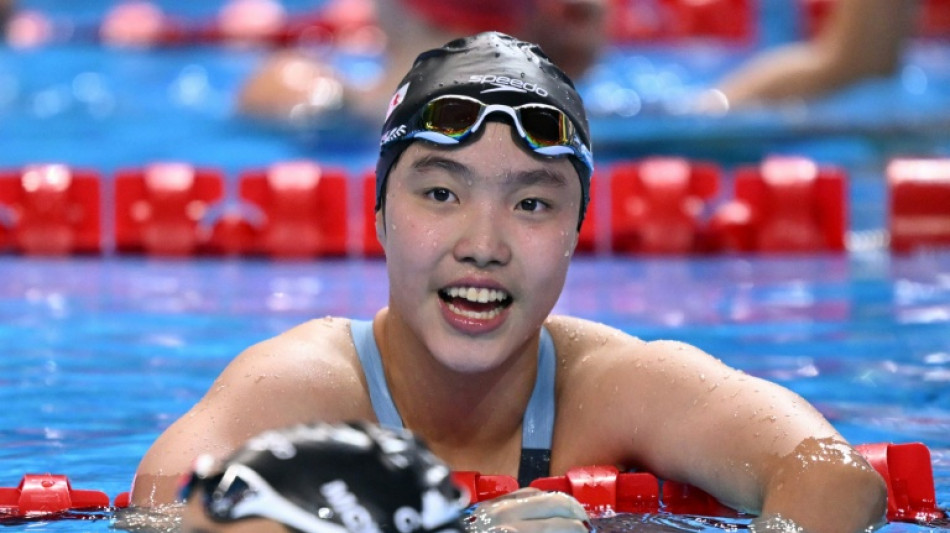
Too much too young?: Swimming's dilemma over 12-year-old schoolgirl

Swimming is a sport well used to talented teenagers, but Yu Zidi's participation aged 12 at the world championships has sparked debate about how young is too young.
The prodigious Chinese schoolgirl is not just making up the numbers at the event in Singapore this week.
Yu qualified for Monday's final of the 200m individual medley and came fourth, missing out on a remarkable medal by just 0.06sec in what is not considered her strongest event.
The race was won by Canada's Summer McIntosh -- she competed at the Tokyo Olympics as a 14-year-old and last summer in Paris won three golds at age 17.
Yu was at it again on Wednesday in Singapore, racing alongside comparative veteran McIntosh to reach the finals of the 200m butterfly.
Yu, who turns 13 in October, will also race in the 400m medley later this week.
The Chinese prodigy, who discovered swimming aged six as a way to cool off in China's roasting summers, has drawn historical comparisons to Inge Sorensen.
At 12, the Dane was the youngest-ever winner of an Olympic swimming medal after her bronze at the Berlin Games of 1936.
More recently, there was Bahrain's Alzain Tareq, who was 10 when she competed at the swimming world championships in Kazan, Russia, in 2015.
Unlike Yu, however, she never came close to a medal.
Asked this week if she was a "genius", Yu replied: "No, not really. It's all the result of hard training."
- 'Too early' -
While Yu's performances have been impressive and could well yield a medal, not everyone thinks she should be competing in Singapore.
Some in the sport have raised questions about the impact on Yu mentally and physically of high-level training and competing at an age when she is still developing as a person.
Under current World Aquatics rules, the minimum age is 14 but younger swimmers can compete at the championships if -- like Yu -- they are fast enough.
Christian Hansmann, sports director of German swimming, called her participation in Singapore "questionable".
"Putting a girl of 12 in front of a world championship crowd of 5,000 spectators, with the high pressure from the media and the coaches, is far too early in my opinion," said Hansmann, who has children of a similar age.
French swimmer Lilou Ressencourt admitted it "pisses me off to be beaten by a girl 10 years younger than me" and said she was surprised by how fast Yu is at such a young age.
She too fears for Yu's physical and mental well-being.
"I'm 22 and handling world championships, even French championships, can be difficult," Ressencourt told AFP.
"I tell myself that at 12, you have a heavy responsibility... it's not normal at 12 to have that kind of pressure."
- Finding balance -
Yu's presence in Singapore could force a rethink of the rules at World Aquatics, the sport's governing body.
Executive director Brent Nowicki admitted they had been surprised that someone as young as Yu had been fast enough to qualify.
Nowicki said World Aquatics "feel quite good about where we are with our safeguarding approach in our sport", but admitted that Yu could force a re-evaluation of its rules.
"She's great. I mean, there's a big future there for her. Hopefully there could be good things that could happen out of this, and it could be great," he said.
But he added: "Obviously we have to make sure that that's what it is, right? We don't want to tip that balance and go the other way, and we have to be careful about that."
Many other sports have wrestled with the same age issue.
In 2022, ice skating's governing body voted to raise the minimum age for senior competition from 15 to 17, months after an Olympics drug scandal involving Russian teenager Kamila Valieva.
Katarina Witt, who was 18 when she won Olympic skating gold at the 1984 Sarajevo Games for East Germany, said the change was "primarily protecting the female athletes from their sometimes over-ambitious managers".
E.Cox--TNT